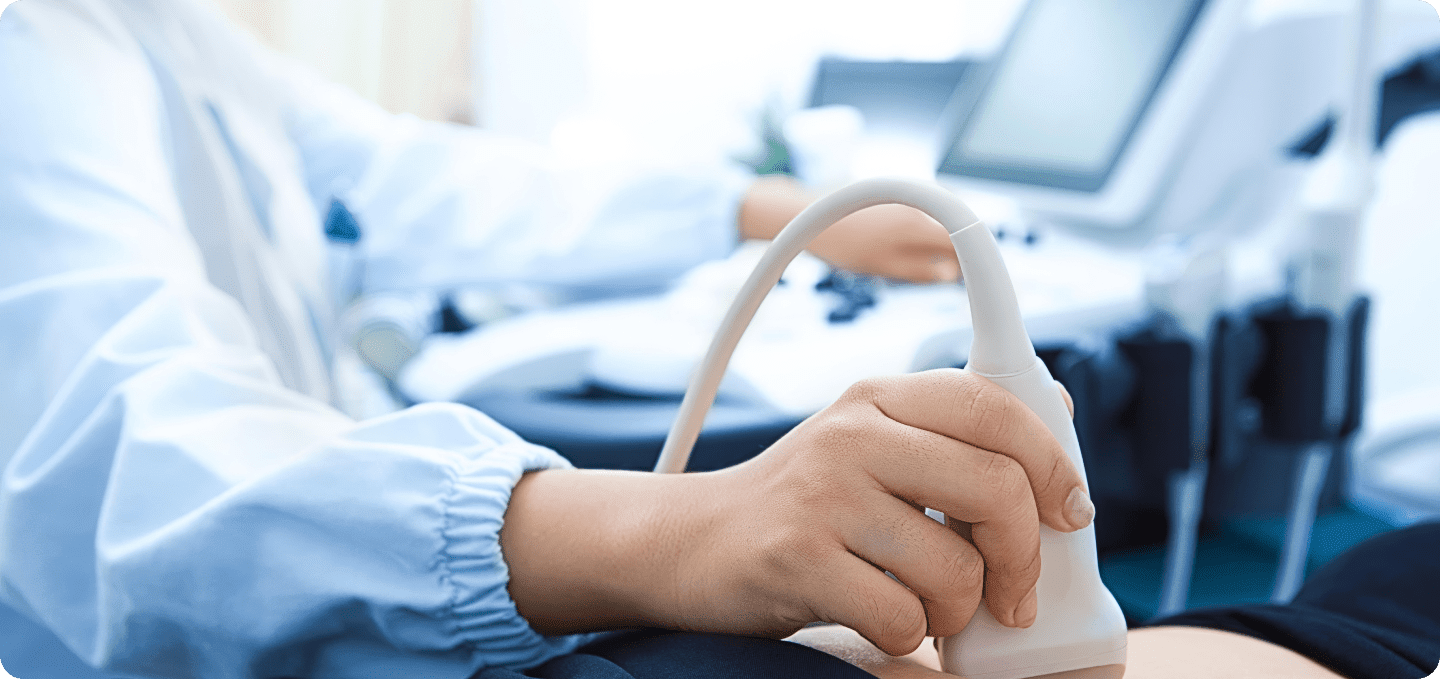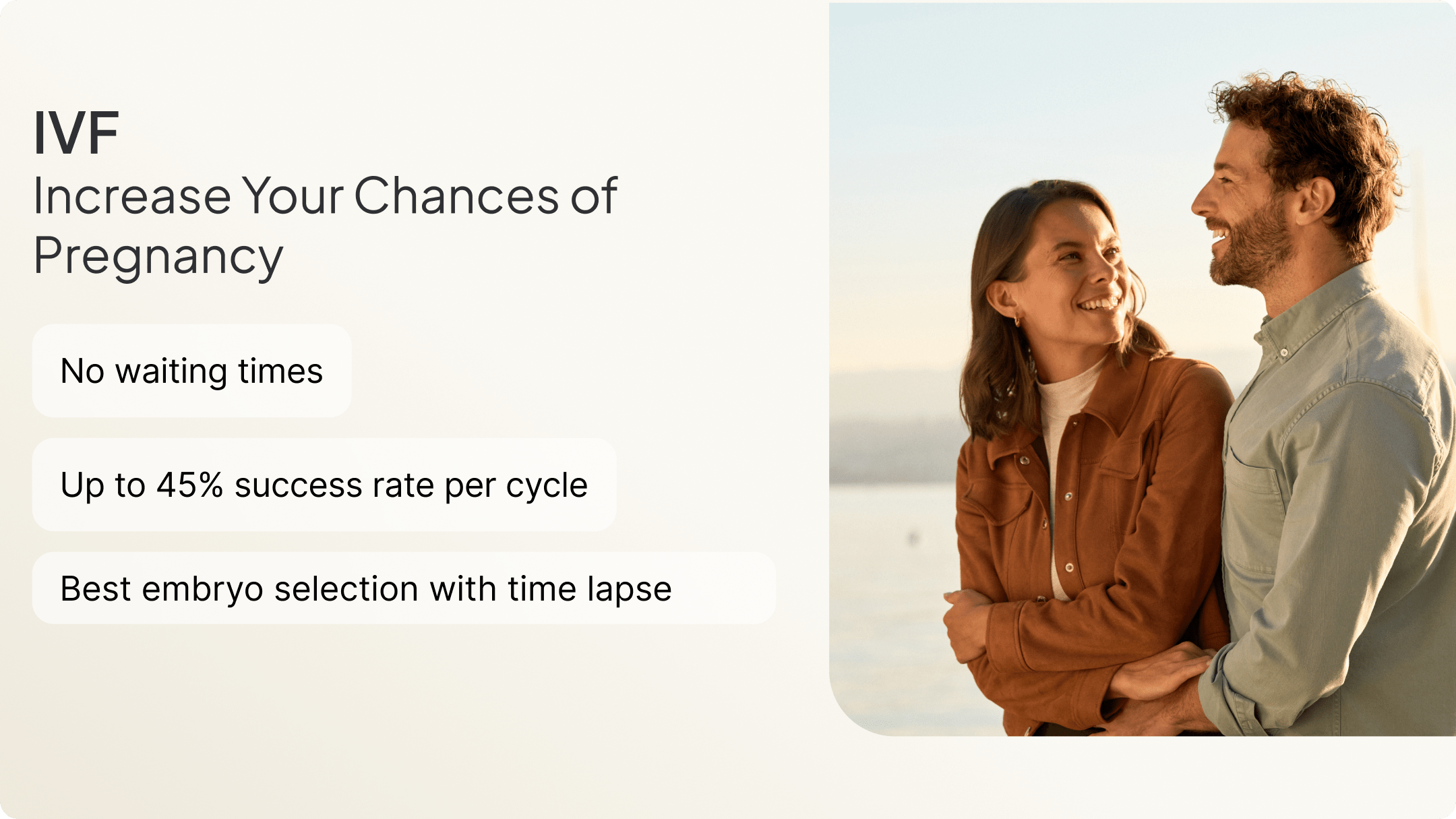Are you a 40-year-old woman trying to conceive? You’re not alone—and yes, it’s still possible to have a healthy pregnancy and a healthy baby even after the age of 40.
While your chances of pregnancy may be lower compared to your 20s and 30s, advances in healthcare and fertility treatments mean that many women are starting families later in life.
In this article, we’ll walk you through the most important facts about getting pregnant in your 40s, what affects fertility at this stage, and how to maximize your chances of a successful pregnancy.
Quick Facts: Fertility After 40
- The average age for first-time mothers in Switzerland is now 31.2
- Fertility starts to decline significantly after age 35
- At 40, the chances of pregnancy per cycle drop to about 5%
- Male fertility also declines with age due to lower sperm quality
- Social egg freezing is a growing option for postponing family planning
Is 40 Too Old to Start Trying for a Baby?
No, but the path may be more complex. After the age of 40, the chances of pregnancy naturally decrease. Women over 40 have about a 5% chance of conceiving in any given cycle—compared to 15–25% for women in their 20s. That said, many women still go on to have a healthy pregnancy and healthy baby in their 40s.
Your lifestyle, health, and your partner’s fertility all influence your chances. You may want to consult your ob-gyn early in your preconception journey to assess your options.

How Does Age Affect Fertility?
Age is the number one factor influencing female fertility. According to the American College of Obstetricians and Gynecologists, women are considered to be of advanced maternal age from 35 onwards. This is when the number of eggs starts to drop significantly, and egg quality begins to decline.
- By 30: ~20% chance of conception per cycle
- By 35: ~15% chance per cycle
- By 40: ~5% chance per cycle
- At 45 and beyond: Natural pregnancy becomes highly unlikely
Why Fertility Declines After 40
There are two main reasons:
1. Fewer and Lower-Quality Eggs
Unlike sperm, women are born with a finite number of eggs, which declines with age. The eggs also become more prone to chromosomal abnormalities, which increases the risk of miscarriage and birth defects. Over 90% of such anomalies are traced to the maternal egg.
Research shows that after the age of 40, the ovarian reserve is often significantly depleted. Women may still ovulate, but the chances of a successful pregnancy are lower due to egg quality.
2. Irregular Ovulation and Hormonal Changes
As women approach menopause—often in their mid-to-late 40s—menstrual cycles become less predictable. This makes it harder to track ovulation. If these changes begin earlier, typically around age 40, it's referred to as perimenopause.
Can I Test My Fertility?
Yes, and if you're considering pregnancy after 40, it's highly recommended. A full fertility check-up includes:
- Gynecological ultrasound: Checks your uterus, ovaries, and fallopian tubes for any abnormalities
- Blood tests: Screens for infections, inflammation, and hormone levels (LH, FSH, estradiol, progesterone, prolactin, and TSH)
- Ovarian reserve testing: Measures Anti-Müllerian Hormone (AMH) levels and counts follicles via ultrasound to estimate your remaining egg supply
- Genetic testing (optional): Especially important after 40 due to the increased risk of chromosomal abnormalities in the fetus
For the most accurate picture of your fertility, speak with your ob-gyn or a reproductive endocrinologist.

What Are My Options if I Can’t Get Pregnant Naturally?
If you’re over 40 and struggling to conceive, don’t worry—fertility treatments can help improve your chances of pregnancy:
Assisted Reproductive Options:
- Hormone therapy: Stimulates egg production
- Intrauterine insemination (IUI): Delivers sperm directly into the uterus
- In vitro fertilization (IVF): Combines eggs and sperm in a lab before implantation
- ICSI (intracytoplasmic sperm injection): A single sperm is injected directly into an egg
- Social egg freezing: Ideal for women in their early-to-mid 30s, but still a consideration for those up to 40
According to recent studies, the IVF success rates for women over 40 are significantly lower than for younger women. While around 50% of women under 30 conceive after IVF, the rate drops to about 13% for those aged 40–44. Still, many achieve a successful pregnancy with persistence and support from their fertility team.
Why Wait?
Struggling to conceive or considering IVF after 40? At our fertility clinic in Zurich, you’ll receive expert care, advanced diagnostics, and personalized treatment to support your dream of having a baby. Let’s explore your options—together.

What Risks Are Associated With Pregnancy After 40?
Pregnancy at this age is considered high-risk. Some of the most common pregnancy complications include:
- Increased risk of miscarriage, especially after 45
- Higher rates of gestational diabetes, preeclampsia, and high blood pressure
- Greater chance of placental abruption and preterm birth
- Higher likelihood of needing a C-section
- Elevated risk for chromosomal abnormalities, such as Down syndrome
- Higher risk of complications like stillbirth or low birth weight
These risks don’t mean you can’t have a healthy pregnancy—but they do underscore the importance of prenatal care and regular monitoring by your ob-gyn.
What About the Father's Age?
Male fertility also declines with age. After 35, sperm DNA mutations become more common, which can contribute to birth defects. One study found that babies born to fathers over 45 had a 14% higher risk of low birth weight and needed neonatal intensive care more often.
Older paternal age has also been associated with increased risk of congenital heart defects, urogenital abnormalities, and even developmental disorders.
How to Boost Fertility After 40
While you can’t change your age, there are proactive steps you can take to support your fertility and increase your chances of a healthy baby:
1. Start with Prenatal Vitamins
Begin taking prenatal vitamins with folic acid as soon as you start trying to conceive. Folic acid supports early fetal development and reduces the risk of neural tube defects.
2. Track Ovulation
Use ovulation predictor kits or fertility tracking apps. You can also track your basal body temperature and cervical mucus changes to identify your most fertile days.
3. Live a Fertility-Friendly Lifestyle
Adopt a healthy, nutrient-rich diet, stay physically active, and avoid smoking and alcohol. These habits can improve both egg and sperm quality and support overall women’s health.

What Should I Watch for During Pregnancy at 40?
Close monitoring is essential. Your prenatal care plan will likely include:
- More frequent checkups
- Ultrasounds to assess fetal development
- Screening for gestational diabetes and high blood pressure
- Additional blood work to track hormone and nutrient levels
These measures help reduce the risk of complications and ensure the best possible outcome for both mother and baby.
What If I Have a Condition Like Endometriosis?
Conditions like endometriosis can lead to fertility issues, especially after 40. If you’ve been diagnosed or suspect you have symptoms (like painful periods or pelvic pain), talk to your ob-gyn or a fertility specialist. Early intervention is key.
Takeaway: Yes, You Can Get Pregnant After 40
Having a baby at 40 is no longer rare—but it can take more time, planning, and medical support. Age affects the number of eggs, egg quality, and hormone levels. Still, many women in their 40s go on to have a healthy baby with proper guidance and care.
Whether you're just beginning your preconception journey or exploring fertility treatments, our expert team at our fertility clinic in Zurich is here to support you. We offer state-of-the-art fertility testing, individualized care, and emotional support every step of the way.







